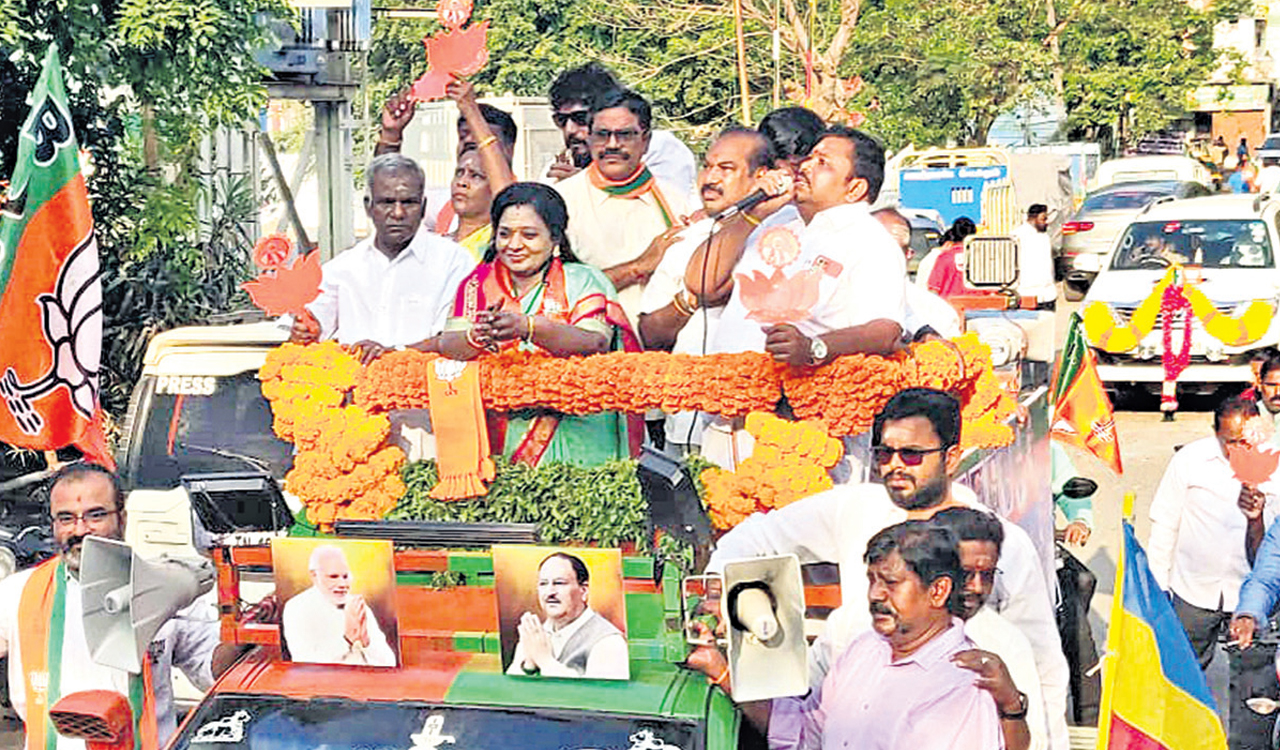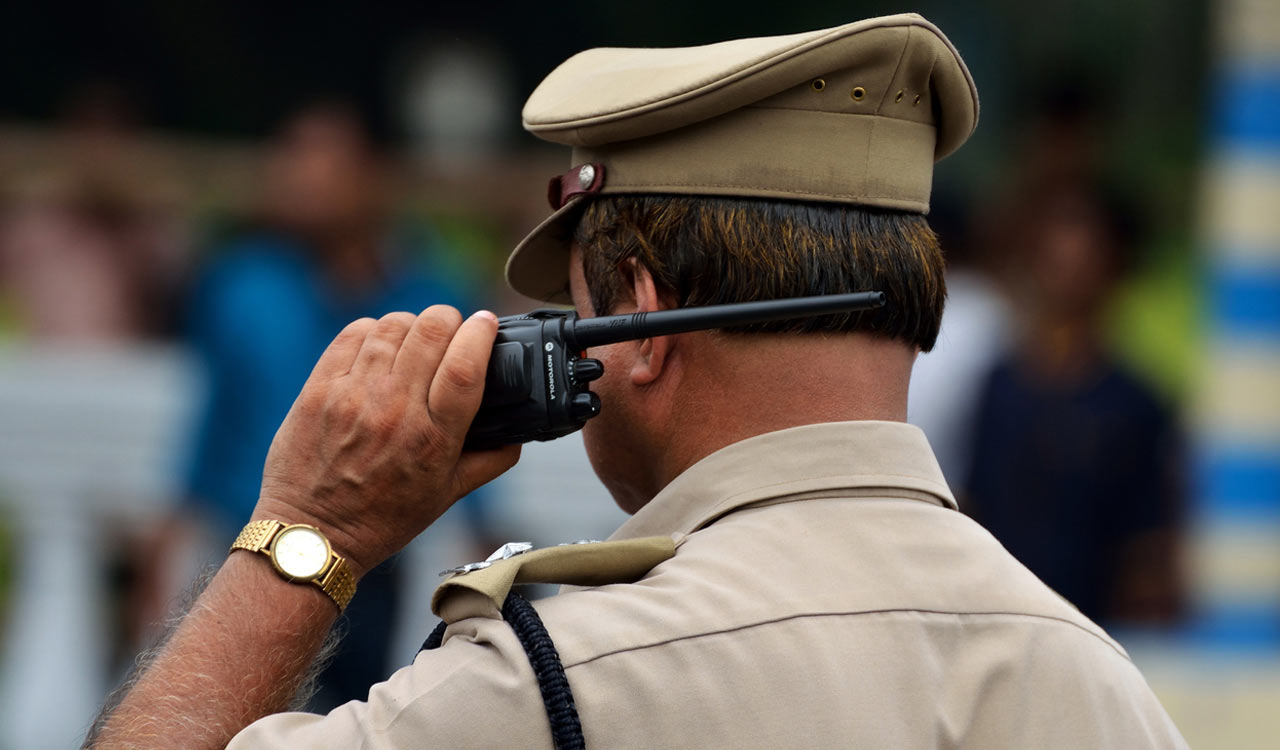
<!–
–>
The Constitution does not contain any provision in this regard and this constitutional silence is being misused by many
Published Date – 2 April 2024, 11:58 PM

By Baglekar Akash Kumar
The general election season, which just began, has seen many unprecedented things. For instance, leaders of some opposition parties have been sent to jail, freezing of bank accounts of major opposition party, a sitting High Court judge (Justice Abhijit Gangopadhyay) resigning to contest on a BJP ticket from the Tamluk constituency in West Bengal and more recently, the sitting Governor of Telangana and Lieutenant-Governor of the union Territory of Puducherry Dr Tamilisai Soundararajan resigning to contest on a BJP ticket from the Chennai South Lok Sabha constituency in Tamil Nadu.
While criticism is largely and rightly made about judges accepting post-retirement jobs which influence their pre-retirement judgments thereby causing great peril to the independence of the Judiciary — an important facet of basic structure doctrine, there is hardly any discussion about Governors accepting post-retirement jobs like getting party ticket to contest in elections which influence their pre-retirement acts and decisions in favour of the party ruling in the Centre, thereby resulting in chaos to the concept of Federalism, another important facet of the basic structure doctrine.
Past Examples
In the past as well, people holding the constitutional post of Governor have resigned to rejoin active politics. The names include SM Krishna, Sushil Kumar Shinde and Baby Rani Maurya. It is, therefore, important to analyse whether a person holding the highest constitutional office of Governor be allowed to rejoin active politics after demitting office.
The post of Governor has been created by the framers of the Constitution with the intent that s/he shall act as a messenger and live link between the Central and State governments to ensure cooperative federalism. However, looking at the turmoil the office of the Governor is bringing in the States ruled by a political party which is not at the Centre, without hesitation, one would say that the intent of the framers of the Constitution is defeated.
Constitutional Scheme
The Governor is appointed by the President of India (literally, union Council of Ministers led by the Prime Minister) as per Article 155 of the Constitution and holds the office at the pleasure of the President [Article 156(1)], which means, as can be found from present context, as long as s/he satisfies the needs of the ruling party at the Centre. The qualifications to be appointed as Governor, as per Article 157, are that s/he should be a citizen of India and should complete 35 years of age. Article 158 lays down the condition that at the time of appointment, the Governor should not be a Member of Parliament or any State Legislature nor should hold any office of profit.
The Governor can at any time before completion of her/his term of five years [Article 156(3)] resign by sending her/his resignation to the President [Article 156(2)]. It is to be noted that the Constitution does not contain any provision barring the person holding the post of Governor, after resigning or completing the term, from joining active politics by contesting in elections. It is this constitutional silence, which is misused by many who, before appointment as Governor, are active and sometimes failed politicians, and while in office instead of acting as a live link between the Centre and the State, act as a nemesis of the State Government ruled by a political party other than the one ruling in the Centre. Finally, after leaving office, they rejoin active politics to again test their potentiality before the voters — this time with the recognition and tag of serving as a Governor.
Various Commissions
During a discussion in the Constituent Assembly, none of the members flagged this issue. Nonetheless, the Justice RS Sarkaria Commission (1988), appointed to review the arrangements between the union and the States, has recommended that as a matter of “convention”, the Governor should not on demitting his office return to active partisan politics. Going a step further, the Justice MM Punchhi Commission (2010), appointed to review Centre-State relations, recommended bringing a “constitutional amendment” in this regard.
Unfortunately, neither the convention is followed nor the constitutional amendment has been brought to date due to which, after demitting office, the Governors are returning to active partisan politics.
If one sees the acts of Dr Tamilisai Soundararajan as the Governor of Telangana, she was constantly having friction with the then State government ruled by the BRS (Bharat Rashtra Samithi). Here are two instances, which even courts faulted, to show her pre-resignation acts for getting the post-resignation job of party ticket from the ruling party at the Centre to contest the upcoming Lok Sabha elections.
First, she rejected the appointment of two persons recommended by the Council of Ministers of the then State government led by the BRS to the post of Member of Legislative Council (MLC) under the Governors’ quota provided under Articles 171(3) and 171(5) of the Constitution by orders dated Sept 19, 2023, on the ground that they do not have special achievements in Literature, Science, Art, Co-operative Movement or Social Service. However, after the change of government in Telangana when two other people were recommended by the Council of Ministers led by the Congress, the Governor instantly accepted the recommendation. When the same was challenged, the division bench of the High Court of Telangana found fault with the decision of the Governor in rejecting the recommendation of the BRS government. (Dr Dasoju Sravan Kumar & Anr. v. Secretary to Her Excellency, The Hon’ble Governor, Telangana, WP No 180 and 181 of 2024 dated 07-03-2024).
Second, when she kept on hold a few Bills passed by the two Houses of Telangana State Legislature, the then State government ruled by the BRS had to approach the Supreme Court. It was then that the Governor gave assent to the Bills, resulting in the Supreme Court closing the writ petition. (State of Telangana v. Governor of Telangana, (2024) 1 SCC 405)
Therefore, it is high time to implement the recommendation of the Justice MM Punchhi Commission (2010), which proposed bringing constitutional amendment providing that the Governor on demitting office should not return to active partisan politics.

(The author is Advocate, High Court of Telangana)
<!–
–>
Source | Powered by Yes Mom Hosting






